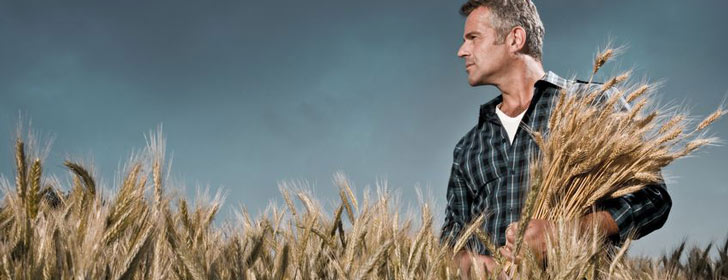Societal Transformation

The bioeconomy is part of a larger societal transformation towards sustainability. Tensions between different societal actors are an element of this transformation. For agriculture as the backbone of a bioeconomy, this new challenge adds to a situation that already is characterized by strong societal concerns and conflicts, among others with regard to environmental effects or production scales.
The concept of bioeconomy builds on new digital technologies and these influence the complex interplay between agriculture and a society in transformation. Scenarios of both a reconciliation and a further alienation of society and agriculture through new technologies are possible. Technological innovations may also influence decision-making, ranging from the farm level to the macro-level of political decision-making.
The processes and effects remain, however, largely unclear, because there are major knowledge gaps regarding the ways in which the different actors will react to new digital opportunities. It is also unclear how new digital options will influence the communication between actors and the formation of broader societal discourses. This research field will address these knowledge gaps.
| Researcher | Function | Location |
|---|---|---|
| Berger, Thomas | Professor of Land Use Economics in the Tropics and Subtropics | University of Hohenheim, Stuttgart |
| Bieling, Claudia | Professor of Societal Transition and Agriculture | University of Hohenheim, Stuttgart |
| Birner, Regina | Professor of Social and Institutional Change in Agricultural Development | University of Hohenheim, Stuttgart |
| Gayler, Sebastian | Biogeophysics | University of Hohenheim, Stuttgart |
| Jung, Robert | Professor of Econometrics and Statistics | University of Hohenheim, Stuttgart |
| Streck, Thilo | Professor of Biogeophysics | University of Hohenheim, Stuttgart |
| Vogelgesang, Jens | Professor of Media Use Research | University of Hohenheim, Stuttgart |
| Project title | Start-Finish | Funding body | Annual average in 1,000 € |
|---|---|---|---|
| FOR 1695 Agricultural Landscapes under Global Climate Change – Processes and Feedbacks on a Regional Scale | 2012-2018 | DFG | 760 |
| Land-Atmosphere Feedback Observatory (LAFO) | 2017-2020 | Carl Zeiss Stiftung | 200 |
| IRTG/RTG 1829 Integrated Hydrosystem Modelling | 2012-2021 | DFG | 750 |
| SFB 1253 Catchments as Reactors (CAMPOS): Metabolism of Pollutants on the Landscape Scale | 2017-2020 | DFG | 2,383 |
| Water and Earth System Science Competence Cluster | 2009-2015 | MWK, Helmholtz | 540 |
| IRTG Climate Change Effects on Food Security (CLIFOOD) | 2017-2020 | DAAD | 500 |
| Water - People - Agriculture | 2013-2025 | Ehrmann Foundation | 231 |
| Microbial Regulation of Soil Functions in Agro-Ecosystems | 2015-2018 | Ellrichshausen Stiftun | 125 |
| Underutilized or Unprotected? New Methods for Analyzing Diverging Perspectives on the Large-Scale Conversion of Tropical Grassland Ecosystems | 2016-2019 | Ellrichshausen Stiftung | 165 |
| Phytoremediation of mercury contaminated mining sites in Ghana and Burkina Faso with arbuscular mycorrhizal fungi | 2019-2022 | BMB | 400 |
